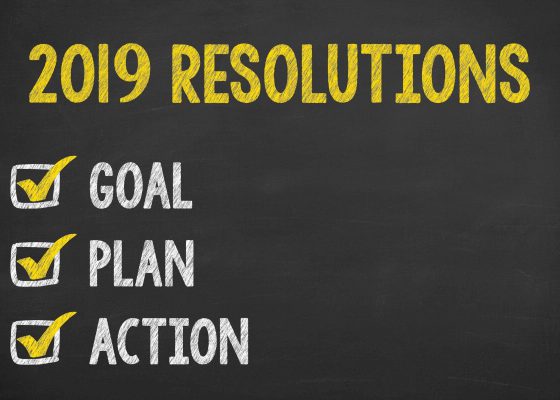Organisational effectiveness for Small to Medium Enterprises
Graham Robson
18-01-17Organisational Development can be described as a planned, systematic approach that aligns strategy, people and processes to deliver organisational effectiveness. This coming together of hard- systems such as strategy, structure and processes with soft systems of values, purpose, culture, behaviour, leadership and learning presents a major challenge to organisations. In my experience, success in strategy implementation is directly linked to an organisations ability to align these hard and soft systems within a framework designed to solve real business issues.
The SME Challenge
SME owners are particularly challenged due to what is frequently termed as the ‘Owners Trap’. This is a common phrase used to describe the inability of an SME owner to stand back and scale their business. This leads the owner to assume that the success or failure of the business is down to their ability, i.e., no one can do this as good as me. Indeed, surviving the start-up phase can reinforce this belief, leading the owner to rely on the hard systems such as the processes that have served the owner well thus far.
Strategy can be described as aligning the internal capabilities of an organisation with its external opportunities within a plan of action that seeks to deliver a sustainable competitive advantage. Success for an SME owner in the implementation of strategy requires that the owner enters the strategic planning process with successful implementation in the forefront of their mind. Specifically, to ensure that the soft systems elements of the strategic planning process are clearly defined and can ultimately form part of the staff engagement process. Success requires clarity in the following areas of the strategic planning process;
- Personal aspirations – developing a clear understanding of what they want to achieve in their personal life allows an owner to separate their personal life from the business and develope a strategy for the business to deliver personal expectations. This holds true whether the entity has a single owner or multiple shareholders, it is this clarity around personal aspirations that gives the planning process purpose and direction and allows shareholders to compromise and align around a common objective.
- Core values – these are the beliefs that are central to the company reflecting the deeply held behaviours of the organisation independent of the current environment or any current industry fads. It is critical that an owner understands and articulates their personal core values – these are their defining principles and work ethics that define how they do business and how they want the business to relate to customers, suppliers and each other.
- Core purpose – We often try to define our business around the product or services we sell or specialise in, this causes a business to focus inwardly rather than on their customers. The core purpose can best be expressed as the reason why the organisation exists and is typically formulated as a mission statement. Like core values, the core purpose is relatively unchanging. The purpose sets the company apart from others in its industry and sets the direction in which the company will proceed. The core purpose is an idealistic reason for being; while firms exist to earn profit, this is simply a by-product and provides little direction for the company’s employees. The core purpose, like core values of the company are not selected, they are discovered, defining the company and providing a rallying point for employees.
- Business vision – is an inspirational description of the organisations future, something for the whole organisation to strive for and to aspire to. The vision should describe milestones that the organisation will reach in the future and might take years to achieve. In contrast to the core ideology that the company discovers, visionary goals are selected. Visionary goals are longer term and more challenging than strategic or tactical objectives. There may only be a 50% chance of realising the vision but the company must believe it can do so. These goals should be challenging enough so that people nearly gasp when they learn of them and realise the effort that will be required to achieve them.
The Key to Success
How a strategy is implemented can have a significant impact on whether it will be successful. Where most businesses fail is when the owner simply rolls out the new strategy to employees as a ‘fait accompli’, this has the effect of disengaging employees making them fearful of change. In most cases, those who implement the strategy are likely to be different from those who formulated it, within SME’s this is likely to be the owner and maybe a senior manager. For this reason, care needs to be taken to communicate the strategy and the reasons behind it. From an organisational development perspective, the intention is to engage the people in the organisation to adopt and own key elements of the strategy, implementing it around pieces of work that solve business issues. The tools that the owner uses to do this are the value, purpose and vision that was articulated during the strategic planning process.
As a priority, the staff need to be engaged and made a part of the decision-making process in making the changes required to support the implementation of the strategy. Typically, this would involve sharing with staff the core values, core purpose and vision for the business along with several challenges facing the business and asking for their input. These challenges usually relate to real business issues such as improving operations and organisation structure and communication, business development and incentives and rewards. It is through addressing real business issues within the framework of values, purpose and vision that provides the context for people lead solutions aligned with the strategic direction that the business has embarked on.
This oblique yet focused approach to combining strategy, people and processes allows an SME owner to learn how to stand-back and implement strategy, be clear about their personal aspirations and engage employees through solving real business issues within a framework of values, purpose and vision that aligns the organisation and defines its culture.
If you would like more information on how you could scale your business and delegate effectively, get in touch and I will be more than happy to provide you with some practical advice. Alternatively get in touch with your local Business Doctor.
Uncategorized

Uncategorized
November 19, 2019Business Confidence – up or down?
The Institute of Chartered Accountants in England & Wales (ICAEW) publish a quarterly UK Business Confidence Monitor and Q4 2019...

Uncategorized
March 27, 2019Have you Found your Core Purpose?
Find Your Purpose Your Core Purpose should come from a mix of what you love, what you are good at,...

Uncategorized
December 11, 2018Three Business Resolutions for the New Year
Three resolutions that you can make to improve your business in the New Year by Planning, Formalising, and Reviewing all...




